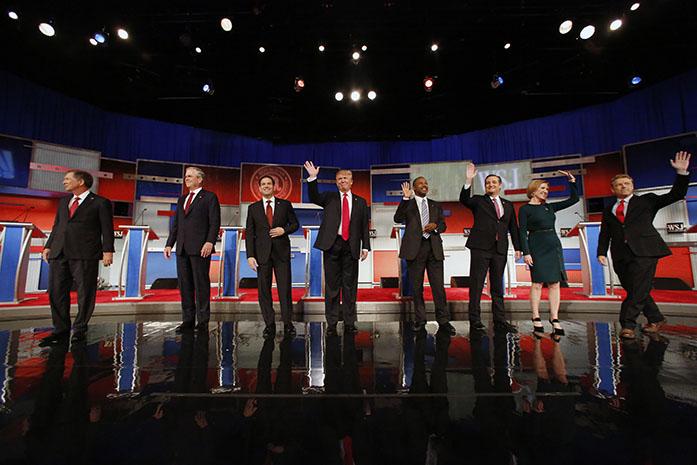Joe Lane
[email protected]
Feb. 6 was the eighth Republican presidential debate this campaign season. As we move closer to the election, candidates are now faced with the difficult task of finding new differentiating opinions.
On that note, this debate certainly presented some interesting scenarios: Rubio was repeatedly thumped by Christie for lazy repetition, Ben Carson finally fell asleep while his name was called, and Ted Cruz tried to cover his tracks regarding his Iowa operation claiming the end of the Carson campaign in Iowa.
But to me, the most interesting issue of all was the heated exchange between Donald Trump and former Gov. Jeb Bush that brought up the question of eminent domain. Though not an issue often at the forefront of debates, eminent domain plays an important role in the Republican Party, in Iowa, and in this upcoming election with the discussion of the Keystone XL Pipeline.
The biggest issue with eminent domain now, of course, is the pipeline. That Republicans favor Keystone while opposing larger federal government (and eminent domain) proves how fundamentally problematic the project is.
While courts have, according to Time, sided with the oil companies for the Keystone XL project, this does not take away from its requiring the use of the Fifth Amendment, which states, “private property [shall not] be taken for public use without just compensation.”
Yet many Republican candidates have expressed their concern and disapproval of the “misuse” and “abuse” of eminent domain. According to Sen. Marco Rubio’s campaign website, for example, he argues that “[eminent domain] is often wielded by crony capitalist politicians to benefit wealthy and powerful private developers.”
While Keystone XL would, in theory, be designed as an aspect of public infrastructure and would play a role in increasing the number of jobs and North American oil production, it would still be pursued partially to satisfy oil lobbyists, a point that became important as Trump referred to booing viewers as “donors” and “special-interest groups.”
Bush and Trump went back and forth in a passionate battle fueled by a booing audience. Bush accused Trump of using eminent domain for his personal advantage in building a “parking lot for limos” and accusing him of taking property from an “elderly woman.” Conversely, since the debate, Trump has gone after Bush about his brother, former President George W. Bush, using the policy of eminent domain to build a baseball stadium.
Whether or not Keystone XL (or a parking lot or a new baseball stadium) falls under eminent domain may have been the interesting question of the debate on Feb. 6, but it wasn’t the core issue.
The question is how can Republicans — so opposed to the federal government limiting individual freedoms and taking from the private sector — support the actions of eminent domain to such a large extent?
As Democrats battle Keystone XL because of its environmental implications, Republicans press on without realizing they are destroying their own platform. Whether eminent domain will play an important role in the next four to eight years is yet to be seen, but if Republican candidates want to stand out in the coming months, they’re going to have to address it.



